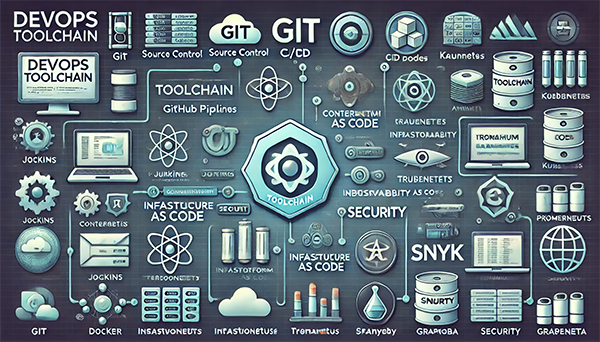Introduction
In the fast-paced world of software development, DevOps has emerged as a key methodology for improving collaboration between development and operations teams. However, managing multiple tools across different stages of the DevOps lifecycle can be challenging. This is where consolidated toolchains come in, offering an integrated approach to streamline workflows, enhance efficiency, and ensure seamless automation.
What Are DevOps Consolidated Toolchains?
A DevOps toolchain refers to a set of tools used to facilitate different stages of software development, including planning, coding, testing, integration, deployment, and monitoring. Traditionally, organizations have relied on disparate tools for each function, leading to inefficiencies and integration complexities.
A consolidated toolchain, on the other hand, is a unified platform or a set of tightly integrated tools that cover multiple stages of the DevOps lifecycle. These toolchains reduce silos, improve collaboration, and enable teams to focus on delivering high-quality software faster.
Benefits of Consolidated Toolchains
1. Improved Integration and Automation
Managing multiple tools can lead to integration challenges and workflow disruptions. A consolidated toolchain ensures seamless integration between different DevOps functions, allowing smooth data flow and automated processes across the pipeline.
2. Enhanced Collaboration
With a unified toolchain, teams across development, security, and operations can collaborate more efficiently. Centralized dashboards, shared metrics, and integrated communication tools help improve visibility and decision-making.
3. Better Security and Compliance
Security and compliance are major concerns in DevOps. A consolidated toolchain integrates security testing, access controls, and compliance monitoring within the pipeline, ensuring that security is a built-in process rather than an afterthought.
4. Cost and Resource Optimization
Using multiple standalone tools often results in higher costs due to licensing, maintenance, and training requirements. A consolidated approach optimizes resource allocation, reduces redundancies, and lowers overall costs.
5. Faster Software Delivery
By reducing manual interventions, eliminating integration issues, and ensuring better pipeline visibility, consolidated toolchains help teams accelerate software delivery while maintaining high standards of quality and reliability.
Popular Consolidated Toolchains
Some widely used DevOps consolidated toolchains include:
- GitLab – An all-in-one DevOps platform with integrated CI/CD, security, and monitoring.
- GitHub Actions – A native CI/CD solution within GitHub for automated workflows.
- Atlassian Open DevOps – A suite combining Jira, Bitbucket, Bamboo, and more.
- Azure DevOps – A Microsoft-driven solution integrating planning, repo management, CI/CD, and testing.
Conclusion
Adopting a DevOps consolidated toolchain is crucial for organizations looking to enhance collaboration, streamline processes, and accelerate software delivery. By integrating multiple functions into a single platform, businesses can improve efficiency, strengthen security, and reduce operational overhead, ultimately driving innovation in the software development lifecycle.

















